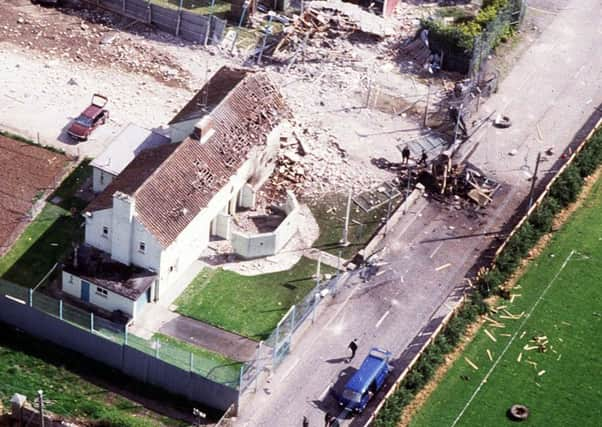Police examine 10 million records as part of Loughgall ambush case


The extent of the task was revealed as a judge warned unacceptable further delay in providing sensitive material on the Loughgall ambush could leave the force with no answer to the lawsuit.
The father of one of these shot dead nearly 30 years ago had been seeking to have the PSNI’s defence to his action dismissed at this stage for failing to hand over the requested material.
Advertisement
Hide AdAdvertisement
Hide AdAlthough Master Bell refused to make a strike out order, he cautioned that such an outcome may still happen in future if satisfactory progress is not made.
He said: “While neither of the parties wish, for different reasons, to see that remedy being granted, it is the ultimate sanction in the event that there is continuing delay in making proper discovery once it reaches the point which the court concludes is unacceptable.”
Proceedings were first issued against the Ministry of Defence over the ambush which inflicted the IRA’s largest loss of life during the conflict.
Undercover soldiers killed eight members of the Provisionals’ East Tyrone unit in May 1987 as they approached Loughgall RUC station in Co Armagh with a bomb in a hijacked digger.
Advertisement
Hide AdAdvertisement
Hide AdThe IRA men shot were: Jim Lynagh, Padraig McKearney, Gerard O’Callaghan, Tony Gormley, Eugene Kelly, Patrick Kelly, Seamus Donnelly and Declan Arthurs.
A civilian, Anthony Hughes, was also killed and his brother badly wounded when they were caught up in the gunfire.
Lawyers representing the families of some of the IRA men who died claim the killings were unlawful.
With the RUC’s Mobile Support Unit also believed to have played a role in the operation, the PSNI was joined to the action in 2014 as the force’s successor.
Advertisement
Hide AdAdvertisement
Hide AdProceedings brought in the name of Declan Arthurs’ father, Patrick, sought to have the police defence dismissed due to the delay in producing documents for the damages claim.
The PSNI provided a list of non-sensitive material to the plaintiff in October last year.
It said the delay in disclosing sensitive files was because of difficulties in going through the volume of information to decide what was relevant.
Issues with servicing forthcoming coroners’ inquests in the so-called legacy cases and the number of available staff were also cited.
Advertisement
Hide AdAdvertisement
Hide AdLawyers for Mr Arthurs argued that the Article 2 obligation within European Human Rights law for the state to act with diligence and promptness had been breached.
But the PSNI stressed the scale of the task involved.
In an affidavit setting out the difficulties in fulfilling its discovery obligations, Assistant Chief Constable Will Kerr stated searches will be required of electronic, microfiche and hard copy material in stores holding more than 9.5 million intelligence records.
That exercise must also be conducted in line with the force’s statutory obligation to protect life and prevent crime, the court heard.
Master Bell declined to throw out the police defence or to declare he will strike it out unless disclosure obligations are fulfilled within a specified time period.
Advertisement
Hide AdAdvertisement
Hide AdRecognising the PSNI is experiencing “significant difficulties” in complying with the legacy inquests and related civil proceedings, he added: “The task is extensive and must be carefully managed so as to balance the rights of all involved.
“However the second defendant must recognise that the remedy that lies in the hands of the court hearing these civil proceedings, namely the striking out of its defence and marking judgment in favour of the plaintiff, is a remedy which is not available to a coroner’s court.”